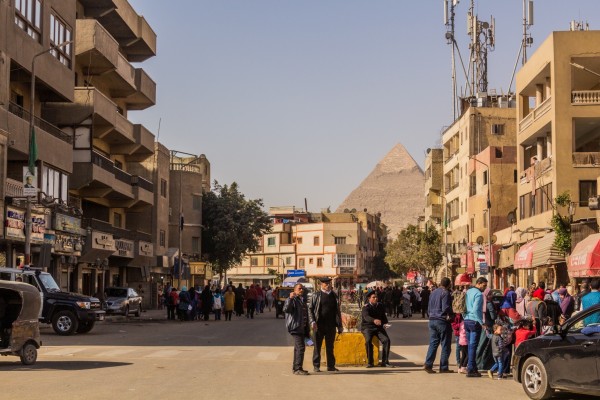Excessive state regulation established by Ecuador’s newly passed media law poses a serious and immediate threat to independent journalism, the International Press Institute (IPI) stated in a special report released today.
The report, a comprehensive review of press freedom developments in Ecuador since IPI’s visit to the country in May 2012, concludes that the situation facing Ecuador’s media has deteriorated to an alarming extent over the past months. In addition to analysing a series of new laws and legislative proposals widely viewed as an attempt to muzzle critics of President Rafael Correa, the report documents numerous acts of hostility directed at journalists, media houses, and press freedom defenders.
Ecuador’s Law on Communications (LOC) came into effect on June 25 after more than four years of debate and over the strenuous objections of opposition MPs and national and international civil-society groups. Among its most troubling provisions, the LOC establishes two state regulatory instruments—the Council for the Regulation and Development of Information and the Department of Information and Communication—with the power to discipline the press through a combination of legal and administrative sanctions.
“The combination of excessive powers and lack of guarantees as to their independence make the two new regulatory bodies prone to abuse of, and arbitrary actions against, media outlets or journalists,” IPI’s analysis found. “Safeguards to prevent such abuse are alarmingly absent from the LOC. Numerous actions and determinations by the Council do not appear to be subject to judicial review.”
In general, IPI’s article-by-article analysis determines that the LOC enshrines government control over areas that are best left to self-regulation. Several provisions establish what is in essence a statutory code of ethics. The LOC also allows the state to predetermine and constrict the content media outlets and journalists may disseminate, for example, by requiring that information meet certain subjective criteria such as “timeliness” and “accuracy.” The law also creates the new offence of linchamiento mediático, or “character assassination through the media,” viewed by opponents as yet another tool for public officials to silence criticism of their actions.
Troublingly, the LOC treats freedom of expression as a good or service, rather than as an innate right protected by international instruments such as the American Convention on Human Rights. The requirement, for example, that the profession of journalism be restricted to persons who are deemed to be “professional journalists” directly clashes with the guarantees of the Declaration of Principles on Freedom of Expression of the Organization of American States (OAS).
“The findings in this report leave little doubt that Ecuador’s media law has serious flaws with respect to protecting the right of the Ecuadorian people to independent information,” IPI Press Freedom Manager Barbara Trionfi said: “We are deeply concerned that the debate on the Law on Communications (LOC) did not take into account the opinions of media representatives and has therefore produced a series of provisions that are inconsistent with international standards on freedom of expression. This appears to be in line with Ecuador’s complete disregard for press freedom and its attempts to undermine the work of organizations that – both at the national and the international level – seek to protect this right.”
“We urge the Ecuadorian government to swiftly reconsider the LOC,” Trionfi added.
The report also provides an update on other controversial proposed legal changes, including the Telecommunications Bill and a plan to reform the Penal Code that would apparently abolish the crime of contempt of authority but, paradoxically, retain and even strengthen the crime of insulting public officials. IPI’s mission report on Ecuador issued in Oct. 2012 previously covered concerns related to those and other laws affecting the media in detail.
The passage of unfavorable legislation is not the only recent development threatening press freedom in Ecuador. Ecuadorian journalists and media outlets have also continued to be the subjects of verbal attacks and acts of violence and intimidation at the hands of public officials, including President Correa. The report also expresses renewed concern over the abuse of official channels of communication to intimidate and discredit specific media houses as well as press freedom defenders.
In addition to arbitrary detentions, confiscation of equipment, death threats, physical abuse, and home raids, Ecuadorian journalists have been subject to murder. In April reporter Fausto Valdiviezo was assassinated in Guayaquil. The identity of the perpetrators of the crime has not been satisfactorily established. The report repeats IPI’s call for a thorough and impartial investigation into Valdiviezo’s killing.
Trionfi added: “The continuing vitriol directed at the media by government officials is deeply disturbing and, over time, dangerously undermines respect for journalists in society. Moreover, it promotes the type of self-censorship that it so detrimental to democratic debate.”
The report, which can be read here, offers a series of recommendations to the Ecuadorian government that build on those contained in the 2012 mission report.
Founded in 1950, IPI is the world’s oldest global press freedom organization. Through its global network of editors, media executives and leading journalists, IPI works to foster and safeguard press freedom, protect freedom of opinion and expression, promote the free flow of news and information, and improve the practices of journalism.


